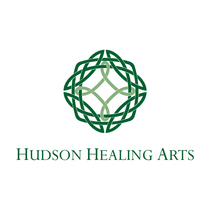|
To know our practitioner, Noreen Haren, is to know the power of having a safe, positive, and entirely non-judgmental space to grow your awareness. And that’s what the Feldenkrais Method is all about!
Here at Hudson Healing Arts, Noreen’s commitment to creating a playful, curious atmosphere for clients to rediscover the joy in movement is something we deeply admire. So we decided to do a little “story time” with Noreen to learn more about the lessons and experiences that have shaped her approach as a practitioner. ~~~ Acceptance I was born with mild cerebral palsy, and discovered Feldenkrais in the 1980s when I was looking for a way to feel more balanced. In my first session with a wonderful practitioner named Alan, he asked me to walk across the room. I knew that I walked slightly on my toes. But to my complete surprise, Alan said: “That’s terrific, let’s see what else you can learn!” It was the first time I hadn’t felt defective...and that’s the transformative effect of Feldenkrais. Alan approached our sessions with curiosity, acceptance, and total support. He also had a great sense of humor and made each session fun. He positively reinforced how well I compensated for my cerebral palsy, and introduced me to the philosophy that no one uses 100% of their brain — we can all improve our movement and our ease in life with awareness.It was Alan who eventually encouraged me to become a practitioner. Compassion When I made the decision to pursue training, I had the good fortune of studying with an experienced group of teachers who were in Moshe Feldenkrais’ original programs (including Alan). Whenever I felt self-conscious or silly, Alan would tell me: “It’s better to be a C student, than an A student because you learn more.” It took a while for his words to sink in. Once they did, it was so freeing. No one in my life had ever really talked about my diagnosis before. But during my Feldenkrais training, I realized that so many of us are drawn to this work because of our own healing journeys. Young, old, athletic, or not, we’ve all forgotten some things about movement, and we all worry about being good students. Everyone needs compassion during the process. Ease A lot of Feldenkrais movements involve re-evoking movements you learned as an infant or child. If you watch a baby, they’re not frustrated, they are curious. They get their information internally. That’s the premise of Feldenkrais: Be gentle and learn to sense yourself to find the pleasure in movement. It’s a powerful lesson for us grown-ups, because we all try so hard! During a lesson on headstands, one of my teachers once told me: “Don’t push too hard, Noreen. There’s millions of people who went through life without standing on their heads. It’s not that important.” This simple advice was so powerful. Feldenkrais is about rediscovering ease (and fun!). The goal isn’t to make a person feel like a 20-year-old, but to help them learn how to function maximally within the limits of their ability. It’s so positive, and people leave with a smile on their face. The benefits go beyond enhanced movement. As Moshe Feldenkrais said, “What I am after isn’t flexible bodies but flexible brains. What I’m after is to restore each person to their human dignity. Healing in movement Being blindfolded during my Feldenkrais training was one of my most life-changing experiences. The goal was for us to deepen our senses, but I had terrible childhood memories from multiple eye surgeries and was dreading this exercise. Once I did it, however, I realized that I was 35 at that moment — not that scared five-year-old. It was so transformative, and more helpful than any other therapy. That’s another beautiful thing about Feldenkrais: You can bypass the emotions by working with the body. Emotions will come up, and it’s okay to cry. Movement can be incredibly cathartic. The blindfold experience showed me there’s so many ways to heal, and Feldenkrais taps into the deep knowledge in our bodies. Empowerment At the end of the day, I’m such an advocate for Feldenkrais because it’s helped me so much. I’ve seen the transformation for so many others as well. Overall, I’m humbled by people’s openness and the opportunity to teach people to be kinder to themselves. Through Feldenkrais, you learn the tools to relax and center yourself. Most of our bodies have been wired to hold tension and be in crisis mode. The beauty of Feldenkrais and other methods like acupuncture, hypnosis, and Reiki is that you learn techniques to take yourself out of stress mode. That is the ultimate gift!
2 Comments
|
AuthorHannah Chenoweth is a Hoboken-based conference producer and freelance writer who enjoys covering all aspects of health and wellness. Archives
July 2024
Categories
Acupuncture
Aromatherapy AshWork Energy Clearing Bach Flower Remedies Guided Imagery Hypnosis Counseling Nutrition Practitioners Psychotherapy Reiki Shamanism Sound Healing Wellness Spring Summer Autumn Winter |

 RSS Feed
RSS Feed